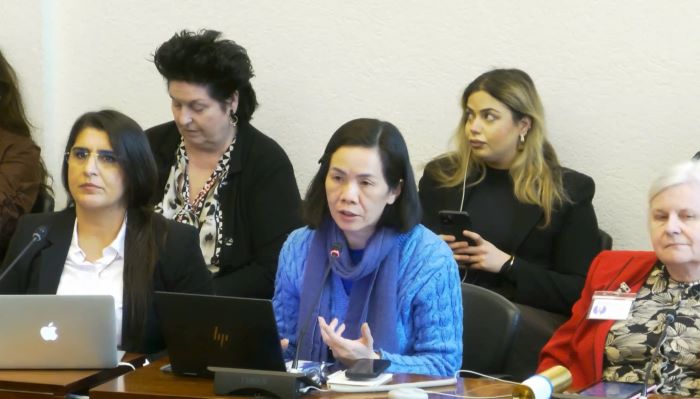The old lady with 60 – year Vietnamese nationality in Tahiti Island

Childhood Adventures
Born into a large family, Mrs. Pham Thi Le suffered a miserable childhood. Not able to cope with canings from her hard mother, she left home and caught a wagon to Nha Trang, 30 km from her house. During the first week, she lived on small compressed rice and pepper salt shared by the driver. Wandering around Nha Trang station, she was soon adopted by a benevolent woman. After being fed a full meal she burst into tears because she missed her parents and siblings greatly but didn’t dare to tell her story to anyone. After being sent to work as a charwoman in another family, she became a portress carrying stone to build Japanese military posts in Phan Thiet.
During this miserable time she could not come home because she did not know where she was. When French replaced Japanese, Le and other employees fled with panic. Le was imprisoned for 6 months until being released on bail by a French soldier to whom she later married. Unfortunately, her husband died early, leaving Le a small baby boy. Le, along with her acquaintances wandered to
Her husband tried to convince her to move to
Having Vietnamese nationality during 60 years abroad
She explained: “The thing I am afraid most is being denationalized. I am Vietnamese. If naturalized in
Though being considered to be cracked and moonstruck, she gave up all chances and interests to be a French citizen, the right that many desire. She said: “One time, I met a Vietnamese woman. I was very happy and asked her so many questions and reminded her of our hometown and Vietnamese dishes. But she tossed her head, saying, “Why you keep saying about old things?” I was so disappointed that did not want to see her again though she is the Vietnamese whose house is nearest to mine”.
According to Mrs. Le, there are only about 100 Vietnamese on
60 years – reunited day
Having no identity papers, in her free time, Mrs. Le usually drew a sketch of her house and wrote down the names of her parents and relatives, hoping to find them one day. During a few meetings with Vietnamese, she told them about her family. Fortunately, she met a woman whose hometown was Nha Trang. She gave her the sketch so that she could help her look for her family.
Mrs. Le received a phone call in Vietnamese one day. “At that time, my heart seemed to stand still. This was my younger brother. We talked to each other from 4 to 7. I knew I was reborn”. Immediately, she packed her clothes and returned to
During the 2 months with her family in Ninh Hoa, Khanh Hoa, her health improved. She met her brothers and relatives, spoke Vietnamese and enjoyed Vietnamese food freely. This visit brings happiness to her as well as sadness to her son and her grandchildren who are living in
In November 2005, Mrs. Le returned to her motherland, ending 60 years of living oversea.
Maria, Mrs. Le’s neighbor who took her back to
During 3 weeks in
At the age of 80, Mrs. Le said with a radiant smile: “I will travel around







